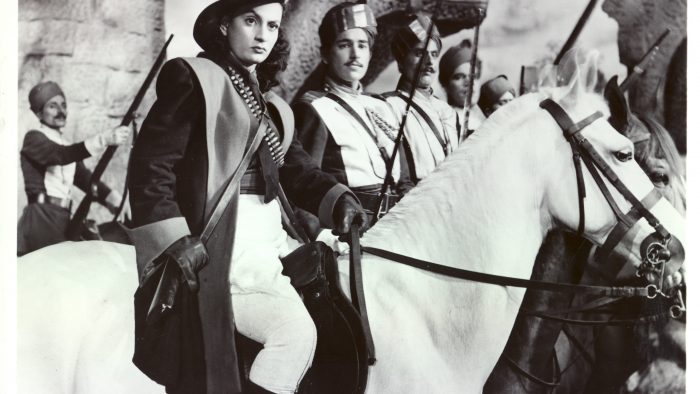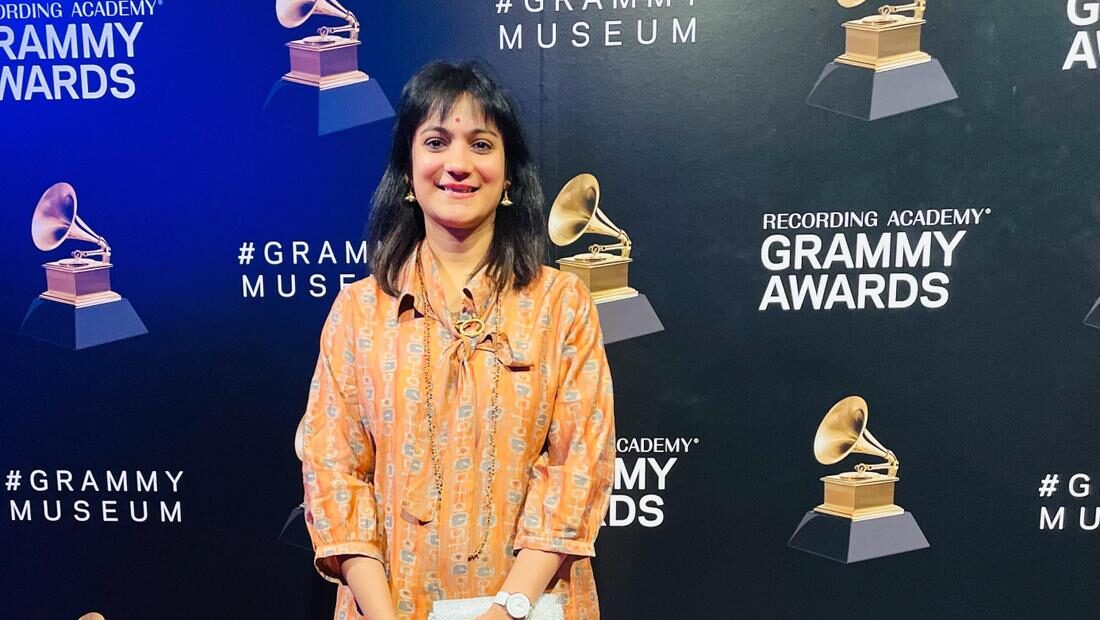Danny Ben Moshe, the award-winning documentary film maker
has spent a long, substantive time researching and piecing together the impact
and influence of Jewish superstars in Bollywood through his movie: "Shalom
Bollywood: the untold story of Indian Cinema". The film tells the
2,000-year-old Indian Jewish community and its formative place in the Indian
film industry.
In this interaction with CSP he speaks about his journey
from Jewish public policy to academia and then to film making, aspects of
India-Israel soft power relations, and the opportunities and challenges going
forward:
Can you explain to us your journey and why and how you took to film
making?
I worked in Jewish public policy in Israel and the diaspora,
and then went into academia where I was an Associate Professor and director of a
research institute in Melbourne, Australia. We wanted to share some of our
research through film as well as traditional academic forms, and I went to see
a film maker to get advice and help with that. I had a longstanding interest in
documentaries which I had eagerly watched on both TV and at film festivals, and
while we were talking I mentioned some documentary ideas I had. To cut a long story
short, that process led us to make a film together and I was hooked. That was
my first film back in 2005, “The Buchenwald Ball” about a group of Holocaust
survivors in Melbourne. Almost 15 years
later, I have now made about 11 films. For a while I carried on as an academic
with film making on the side and then performed as half academic, half film
maker, but a few years ago I became a full time film maker.

When was the first time you visited India? What has fascinated you
about India?
I first went to India soon after my first film, probably in
2006 or 2007. The initial idea was to explore the possibility of making a film
about the Jewish actress Nadira who had recently passed away. I wanted to
explore what material existed for such a story and who I may interview for such
a film, but as a Westerner and first-time visitor to India, I was captivated by
a totally different society and civilisation to what I was used to. The mass of
people, colours, cacophony of sounds, were something I had never experienced
before. As I delved into India’s Jewish
story, and met local Jews, I asked them about-Semitism, or Jew hatred. They all
looked at me oddly either to ask me to clarify what anti-Semitism is or why
anyone would hate them. India, I was delighted to discover, is probably unique
in being the only country in the world where the Jewish community has not
experienced any anti-Semitism. As a Jew I found that fascinating and heartening.
It made me want to delve deeper into India society and the dynamics that made it
tick and explained its Jewish story.
What prompted and intrigued you to study the role of Jews in Indian
cinema and how long and arduous was the journey?
The journey began, as many great journeys often do, in an
unplanned way. In my University Institute I had an Indian Post-Graduate student
working for me who had encountered a few personal problems, such as housing.
Knowing that internationals students often don’t known how to navigate the
Australian system, &/or landlords try and take financial advantage of them,
I stepped in and helped resolve the situation. It was really no big deal, but her
father, whom I had met on a visit to Australia, was extremely appreciative that
I had helped her out. He started sending me Iittle gifts, such as pens or key
rings via his daughter. These were
unnecessary but apparently quite an Indian thing to do. One day the student,
Devaki, walked into my office and said, “This is from my father,” and this time,
the item he had sent was an obituary about Nadira with a reference to her being
Jewish. As the father knew I was Jewish he thought it would be of interest. I
had always known there had been Jews in India, but had no idea that there was
this Jewish superstar in Bollywood, and that’s really how my “Shalom Bollywood”
journey started.
That journey proved to be very long and very arduous. It
took me over 10 years to make the film. This was for several reasons.
Firstly, it was very early on in my film career and I was
taking on a massive story.
Secondly, from a financial point of view, I was unable to generate
film finance. Usually the way it works with documentaries I make for example
for Australian TV or British TV, is that they are publicly funded but they must
have content about their country i.e., Australia or Britain. This that was not
an option with my ‘Shalom Bollywood film”.
Thirdly, it was also challenging because all the Jewish
stars had passed away. I needed to find people who knew them and could speak
about them. It took me years and I eventually tracked down Ruby, an elderly
lady in Sydney and relative of Sulochana; Diana, a relative of David Abraham in
Canada, and Rachel Reuben, the former model who is a relative of Rose, in
Mumbai. I then had to travel to all these places to interview them which took
time and money.
Fourthly, it was a major struggle to track down archive of
the Jewish stars that I needed to tell this story. For example, I knew there
would be interviews on India radio with the Jewish stars or photos of theme at
the Phalke awards, but ultimately had to give up on my search for these and
find other ways to tell the story. But necessity is the mother of invention, which
is why my film utilises animation and storyboards, which turned out to be
effective, fresh and find storytelling devices. However, I wanted the viewers
of my film to go away with the sense they have seen the films of the Jewish
stars of India, so I included some fairly lengthy segments with excerpts from
the films of old Jewish stars. Then the audience goes away with the feeling
"Ah, I know Sulochana, I have seen her before. I know Pramila. I know
Rose. I know David. I know Nadira". And, you know, hopefully that is a way
to remember them and keep them alive.
Fifthly and finally, it was very arduous because, to be
honest, the bureaucracy and even the government film organisations in India are
very difficult to liaise with. I explicitly came against corruption where
people would only provide relevant materials if I paid a bribe.

What are some of your noteworthy conclusions with respect to Jews in
Indian Cinema?
I think it was a unique confluence of events that led Indian
Jews to play the pioneering role they did in Indian cinema. Indian Jews were
part of this very modern Anglo-Indian Jewish community at a time when cinema
was beginning and it was taboo for Hindu and Islamic women to perform on screen.
The Jewish community, and Jewish women in particular, were generally more
progressive, and did not share these taboos. In addition to their place in
Indian society, Indian Jews also had ties and familiarity with the West and its
cinema. Physically, the (Baghdadi) Jewish women had the high cheeks bones and
lighter skin that emulated the Hollywood look which made them perfect for the
low light conditions of early India cinema. It was just one of those unique
moments in history where the above factors came together leading Indian Jews to
have the pivotal role they did.
The conclusion I reach is that the course of Indian cinema's
history would have been distinctly different, certainly in terms of time frame
of developments, without these Jewish stars. But also perhaps without the
development of some of the roles such as vamps and other archetypes of the
Indian cinema, these characters and their casting would have been different, or
would at least have evolved differently. The other conclusion that must be
drawn is that as a tiny community, in its peak was only tens of thousands, the impact
it had on Indian cinema and society was disproportionate to its size.
Today there is hardly any trace of Bollywood’s Jewish connection? Are
there still many Jews in Indian cinema?
Well my first response to that is, even when the great
Jewish actors were at the heart of Bollywood or Indian cinema, like Sulochana,
Nadira, David, most people didn’t even knew that they were Jewish! When I spoke
to cinema historians, journalists and others in India, they had no idea; they
thought they might be Christians or Parsis. Today, there is no real trace of
Jews in Bollywood other than their legacy and I don’t think we can
underestimate that. So perhaps that Jewish presence is felt in the performances
of contemporary character actors in the tradition of David or vamps in the
tradition of Nadira and Pramila.
Today, Pramila’s son, the actor Haider Ali, who co-wrote "Jodha
Akbar", continues to write and act in Bollywood today. The Jewish
choreographer Baba Herman, who is seen in my documentary on set, can often be
found directing a dance scene in Bollywood today. But the Indian Jewish
community is small, just a few thousand, and of course taboos on Hindu and
Islamic women are long past, so the unique niche they filled is no longer there.
And while she has left India, the granddaughter of famed 1930s actress Miss
Rose, Rachel Reuben, continues her film work as an editor in New York.
Apart from acting, what are some of the other fields in which Jews
played a significant role in Indian cinema as per your research?
Well, the biggest non-acting role was that by Joseph David
Penkar, who wrote the first talkie in Indian cinema; that is a real milestone. It
is no coincidence that it was a Jew, who comes from a community with a long
tradition of literacy, after all we are the “People of the Book”. And of
course, the late great Bunny Reuben, who was Raj Kapoor’s right hand man and
publicist, a real giant in off-screen Indian cinema.

How would you define India-Israel soft power relations through cinema
and TV? What are some of the opportunities and challenges going forward?
I think Bollywood and Indian cinema is a massive dimension
of Indian soft power. Israeli cinema is also very significant. If you think in
terms of "Waltz With Bashir" the documentary, or the current Netflix
drama, "Shtisel", these have surprising impact and influence, but are
in no way close to Bollywood. Also, they often, in the form of “Waltz With
Bashir” and massive Netflix hits like “Fauda”, are about the
Israeli-Palestinian/Arab conflict, rather than distracting from it. I don’t think too many popular Indian films
and TV dramas would take the situation in Kashmir for their subject matter.
Israel’s soft power is far more in areas of technology,
environment, agriculture etc, and my understanding is that there is great work
going on between India and Israel at the present time in these spheres. In terms
of opportunities moving forward, I think there is scope for an Israel-India
film co-production. Israel very recently signed a co-production treaty between
Israel and India and perhaps this is an area for collaboration for the benefit
of soft power for both the countries. Indeed, I am currently trying to develop
an Israel-India film coproduction based on my “Shalom Bollywood” story.
My film "Shalom Bollywood" had its world premiere
at the Mumbai Film Festival where it was reviewed by a Hollywood reporter as
“lively, upbeat and entertaining” and it was also screened as part of the
Israel Country-In-Focus screening at the Government of India’s International
Film Festival at Goa in 2018, where it got a standing ovation. The film has been a massive hit on the Jewish
and India film festival circuit around the world, bridging two cultures and finding
common ground between the two civilisations.
Interestingly, when Israeli Prime Minister Benjamin Netanyahu visited
India, he held a special outreach with the Bollywood fraternity in Mumbai and
the campaign was titled Shalom Bollywood. What are your thoughts on this?
I am familiar with this Netanyahu-Bollywood event because
scenes from my documentary were screened at this Bollywood gathering, and it
was a real honour for me to have that take place. I think “Shalom Bollywood” was
right for this event because Shalom means “Hello” in Hebrew and it was
Netanyahu saying "Hello" to the Bollywood fraternity, and it was also
Israel, from its highest office, saying "Hello" to Indian cinema. If
Bollywood is a word synonymous with India, Shalom is synonymous with Israel, so
the name of this event was very apt.
Are you grooming any talent to pursue their passion in Indian cinema
from Israel?
I am Jewish but actually an English Jew by birth. I have
lived in Israel and hope to live there again, but am currently living in
Australia where I have been for 20 years. But the world is a global village and
I am looking to make a Jewish Indian drama and I hope it will be an
Israel-India-Australia co-production.

Are there universities in Israel that teach film making and cover the
India-Israeli connection in Indian cinema? Do you teach this aspect in these
universities and are there any special courses?
There are some fantastic film schools in Israel. There is the Sam-Spiegel Film and Television
School in Jerusalem, the capital of Israel. And there is a film school in Tel
Aviv University. I don’t know the specifics of what any of the above are
teaching about India and Israel, but if you are studying world cinema, you
can’t ignore Bollywood.
While I’d be honoured to work for any film school in Israel,
I have no formal connections to any of them because, as I explained I am based
in Australia. However, I teach short courses on Jewish films at different
Institutions and museums in Australia and around the world, a lot based on my
own films. I include "Shalom Bollywood" in these, which always
generates a positive response and extensive discussion.
In Eilat, the southernmost city of Israel, I believe every
year there is a festival of Indian cinema. Israel is massive melting pot with
people from over 100 countries, including India, and they stay in touch with
India and its cinema. As my “Shalom Bollywood” documentary shows, films such as
"Mother India", a classic of Indian cinema, have played in Israel.
The Eilat event is a big gathering for Indian Jews who would be showcasing
latest films from India.
Who knows what will be in the future but I think we can say
that the Israel-India relationship will get stronger and stronger. I hope
cinema will be one dimension of that. And I hope I will be able to play a small
part in that.
‘Shalom Bollywood: the
Untold Story of Indian Cinema’ can be watched in Israel and India on demand at https://vimeo.com/ondemand/shalombollywood
You can find out more
about Danny’s films at www.identity-films.com




